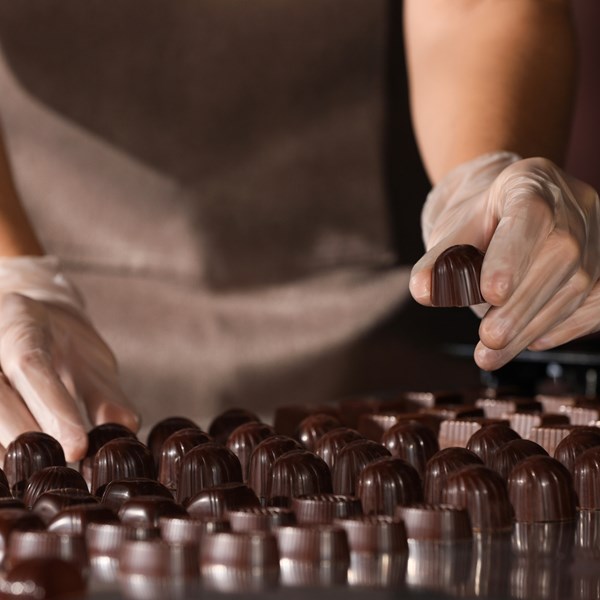While more sustainable products are rightfully at the vanguard of the food and drink industry, the niche that arguably needs to innovate fastest is chocolate.
It is not news to report that consumers are becoming increasingly aware of the environmental and ethical impact of their food choices, but it may surprise some to know how harmful the production of chocolate, or more specifically cocoa, is to the environment.
Traditional methods of cocoa farming are heavily linked to deforestation and the loss of natural habitats. They also involve environmentally damaging agricultural practices. The impact is so huge that the EU has now added cocoa to its hitlist of deforestation-risk commodities. Cocoa will join soy, beef, palm oil, coffee and rubber on this hitlist when the European Deforestation Regulation (EUDR) comes into force in December 2024.
Moreover, there are ethical considerations. The chocolate industry continually faces criticism for its labour practices. Child labour, exploitation, and unfair wages are all accusations growers face in cocoa-producing regions.
There is also a significant financial reason for searching for an alternative source of chocolate. Rising cocoa prices (the cost of a metric ton recently reached $10,760).
The good news is that innovators have taken up the challenge and a growing number of start-ups have worked hard to produce their own alternatives to chocolate.
WHAT ARE THE ALTERNATIVES TO CHOCOLATE FOODTECH START-UPS HAVE INVENTED?
There are multiple examples of the interesting work foodtech innovators are doing in the chocolate world. Here are a few examples.
German brother and sister Dr Maximillian and Sara Marquart have launched a cocoa-free concentrate and butter based on oats and sunflower seed under the brand name ChoVivia. When both are used together, they create a cocoa free chocolate. ChoVivia is produced by a patented fermentation-like manufacturing process.
Endless Food Co has created THIC (This Isn’t Chocolate), a chocolate made without the use of cacao beans or butter. THIC is a patent-pending, plant-based confection solution made with upcycled ingredients such as brewer's spent grain that can be used in pastries, ice creams, coatings, in combination with traditional chocolate, and more. The possibilities are endless. Endless Food Co has just partnered with Rockstart which is a visionary early-stage accelerator-VC that empowers purpose-driven founders in AgriFood, Energy and Emerging Technologies.
Voyage Foods, a US-based start-up, has found a way to make not only a chocolate but also a coffee-free spread and a nut-free spread. They do this by upcycling grape seeds discarded as a result of wine production which are then combined with vegetable oil, cane sugar, sunflower protection flour, natural flavours, sunflower lecithin and salt.
Meanwhile UK-based Nukoko has used a close relative of the cacao bean - the faba bean - to make their chocolate alternative using fermentation. Both beans contain the protein vicilin which when broken down, produces chocolatey flavours.
Cellest Bio’s discovery is not 100% cocoa free admittedly. It is, however, 100% ‘tree free’. They have cultivated cocoa butter and powder from extracts from cells taken from cacao beans which are then grown in water, sugar and vitamins. The result is a continual cycle of new beans if grown in a controlled environment. This means no new trees need to be cut down.
Finally Italian start-up Foreverland is “rethinking” chocolate by utilising the pretty much forgotten crop carob along with upcycled foodstuffs and other locally sourced ingredients to produce, using fermentation, Freecao, their own cocoa free product.
Similarly, Win-Win in London is also using carob, this time alongside barley and mixed with fats and sugar using traditional chocolate making equipment to produce their own alternative to chocolate.
All these companies are fundamentally based on scientific innovation, utilising advanced technologies such as fermentation to produce products that address numerous issues with traditional cocoa farming.
Protecting intellectual property is essential to safeguard their innovation, maintain competitive advantage and in many cases secure funding. By integrating scientific advancements, strategic investments, and robust intellectual property protections, these companies can continue to innovate, scale up and make a significant impact, not only in the food industry but in the world.
If you are a foodtech innovator and would like to discuss how you can maximise both the impact and the value of your ideas, please contact our dedicated foodtech and agritech team today.






